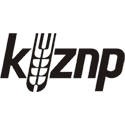The Week in Europe 22/09 - 28/09/00
05.10.2000 | Euroskop
Prodi urges Milosevic to accept defeat and opens door to aid
The EU is ready to lift sanctions and help rebuild a democratic Serbia if the opposition victory in the election of 24 September is respected. Commission President Romano Prodi called on Slobodan Milosevic to acknowledge that the Serbian people had voted for change and that Vojislav Kostunica and the democratic opposition had won. They had won in spite of efforts to ignore the will of the people, Prodi said, and had voted massively for democracy, for peaceful transition and to rejoin the European family. The Commission is already working on measures to help Serbia to rebuild its economy and infrastructure, lift sanctions and provide emergency aid to cope with hardship over the winter provided the vote is respected.
[Background text: IP/00/1070]
Danes voted “NO” on single currency
On the eve of 28 September the Danes said their clear “no” to the European monetary union. According to the first official results 53 percent were against while 47 percent in favour of joining the euro. This 'no' vote will keep the country's opt-out from euro zone, the third stage of economic and monetary union. A 'yes' vote would have led to the ending of Denmark's opt-out on the single currency, which was agreed by an EU summit in Edinburgh in December 1992. The Danish people endorsed the Maastricht Treaty in a referendum in May 1993, having narrowly rejected ratification in a referendum in
June 1992. Today's vote was the country's sixth referendum on EU affairs; the first in
1972 backed Denmark joining the EEC the following year.
Insurance brokers go EU-wide
A Directive to enable insurance brokers to operate in any Member State was put forward by the Commission on 25 September. The proposal seeks both to make it easier for brokers to set up in any EU country and provide cross-border services, and to ensure a high level of protection for customers. The system is based on registration requirements in the broker's home country, such as professional expertise, liability guarantees and financial capacity. Brokers would also have to tell customers whether they are tied to one or more companies. The measure will allow Member States to adopt stricter rules than the minimum it sets out, but only for brokers registered on their territory. Commissioner Frits Bolkestein said brokers were a vital link in the sale of insurance in the Union and also played a pivotal role in protecting the interests of customers. Once agreed, the Directive would replace a 1977 measure and become the only binding EU measure for brokers. Its adoption is a priority of the Financial Services Action Plan backed at the Lisbon summit in March. The single market for insurance companies has largely been completed. For details, see http://europa.eu.int/comm/internal_market/en/finances/insur/intermed.htm [Background text: IP/00/1048]
'Agency to ensure air safety'
A European Aviation Safety Agency would ensure that air travel in Europe continues to operate at the highest levels of safety, Commissioner Loyola de Palacio said on 27 September. Presenting a draft Regulation to establish the agency, she said it would make sure safety measures were applied uniformly in Europe and that any necessary safeguards were also put in place. It could also support the drawing-up of common standards, and allow the aeronautical industry to place its products on the European market through a single certificate. The agency could also promote technical rules for environmental compatibility, on noise and exhaust emissions, for example. Air traffic growth is accelerating, and the public understandably wants the highest possible level of safety as well as good quality of service and fewer delays.
[Background text: IP/00/1062]
Swedes lead innovation index
Sweden leads the first EU Innovation Scoreboard, drawn up with guidelines to boost performance and take full advantage of the knowledge society. The Scoreboard aims to help benchmark and build on best practice in other Member States, using indicators from four areas: human resources; knowledge creation; transmission and application of knowledge; and innovation finance, output and markets. Sweden has above-average figures for 12 of the 16 indicators, and is followed by Finland (8), Denmark and Germany (both 7). The UK (5) emerges with strengths in jobs in high-tech services, innovation cooperation by small and medium-sized businesses, venture capital, internet use, and the market for information and communication technology. It is rated weaker in the capitalisation of new markets and expenditure on research and innovation. The Communication, issued on 21 September, also includes recommendations that Member States tackle obstacles in red tape, create a favourable environment for start-ups, and help training in areas such as entrepreneurship and innovation management. Details at
http://www.cordis.lu/innovation-smes/communication2000/home.html [Background text: IP/00/1035]
Streamlining competition law
National competition authorities and courts would play a larger role in enforcing EU competition law under a proposal put forward on 27 September. They would be able to apply directly EU laws on price-fixing, cartels and other restrictive practices (Article 81 of the EU Treaty) as they already do in cases of abuse of dominant position (Article 82). The present system involves Member States notifying agreements to the Commission, which has the sole right to authorise restrictive deals. Instead, national bodies would work with it as a network, operating a single legal regime an arrangement which will simplify dealings for businesses, too. The change will also enable the Commission to concentrate on the most serious abuses of EU competition law.
[Background text: IP/00/1064]
Poland and EU agree farm deal
The 1bn euro (36bn CzK) a-year trade in farm products between Poland and the EU should be liberalised substantially by a deal struck on 26 September. Around three-quarters of Polish agricultural exports (at current levels) would gain exemption from EU import duties. For all the products on which Poland had earlier increased tariffs, solutions were agreed to ensure that export opportunities for the EU would be restored to their previous levels. The main products covered are: almost all fruit and vegetables; pig meat, poultry and beef; cheese, butter and milk powder; and wheat. The deal is good for trade and for Polish preparations for joining the EU, said Commissioner Franz Fischler. It covers more than other agreements on agricultural trade liberalisation recently concluded with the Central and Eastern European candidate countries, he added. The agreement with Poland was reached after 18 months of negotiation.
[Background text: IP/00/1065]
Lift-off for space strategy
The first joint strategy for Europe's growing space industry is being developed by the Commission and the European Space Agency (ESA). This sector has world-class capabilities but could do more to exploit these strengths to respond to market needs and to support work on the environment, agriculture, foreign and security policy, Commissioner Philippe Busquin said. One aim of the Communication agreed on 27 September is to define a role for the EU in the field of space policy. To take forward the strategy, a joint task force will be set up with ESA to review space developments together, reporting back by December 2001. The turnover in the market for satellite communications alone is expected to reach 60-100bn euro (2000-36000bn CzK) by 2002, and the space industry employs 40,000 highly qualified people in Europe. [Background text: IP/00/1069]
CEE narrows EU trade gap
Hungary, Romania and the Baltic states greatly reduced their trade deficits with the EU last year, according to Eurostat figures on 26 September. Hungary cut its trade deficit with the EU to 1.3bn euro, compared to 2.2bn euro in 1998, as imports rose by 10% and exports by 18%. Romania more than halved its trade deficit with the EU from 1.2bn euro to 0.5bn euro; exports rose by 12% while imports remained static. Estonia and Lithuania both cut their trade deficits with the EU from 1.0bn euro to 0.5bn euro, and Latvia cut its from 0.5bn euro to 0.3bn euro. For all three of the Baltic states, exports to the EU increased and imports from the EU fell.
· Commissioner Pedro Solbes has urged countries planning to join the EU to gear up for the euro changeover. The move in the euro zone to make all transactions euro by 1 January 2002 will affect the organisations that deal with them, he said, suggesting that they draw up changeover strategies. [Background text: IP/00/1061]
Driving for the 100km/litre car
A car able to travel 100km on one litre of diesel should result from a 5.2m euro (183.86bn CzK) EU-backed research project. Lightweight materials are the key to fuel-efficient vehicles and form the focus of the work low-cost carbon composites in this case. The project runs until 2004, by which time an ultra-lightweight version of a Volkswagen car (the Lupo TDI) should be ready for production. The materials should reduce the vehicle's weight by 40%, with accompanying improvements in fuel economy and emissions. A 70% reduction in the number of parts in the car from the usual 200 plus should keep down production costs, too. The EU's Fifth Research Programme is also supporting projects to develop smaller, more fuel-efficient engines.
[Background text: IP/00/1060]
News on enlargement
Candidates' views on enlargement process
The foreign ministers of the first-wave candidates are planning to meet in mid-November, after the publication of the regular reports and the composite paper, and before the Nice summit, so as to prepare a common position. After their last such meeting, in Ljubljana in the spring, they issued a tough reminder to the EU not to slow down enlargement, and set clear targets for the French Presidency. Jan Kavan says he still sticks by the Ljubljana expectations.
Negotiators from all twelve candidates put their names to a statement which underlined the importance of the consistency, predictability and momentum of the enlargement process after their meeting in Vilnius in mid-September. They reiterated that all countries should be judged on the basis of their own merits and emphasised that, in line with the principle of differentiation, the possibility of catching up should not slow down accession negotiations with any candidate country. And they expressed the hope that the French and Swedish presidencies of the European Union "will substantially contribute to the acceleration and completion of the negotiating process". They took the view that the accession negotiations could be concluded with "any prepared candidate country during the year 2001 and expressed their expectation that this possibility will be included in the accession scenario to be adopted by the European Council in Nice.
SAPARD APPROVED
The first rural development programmes to be co-financed by the EU's SAPARD programme of assistance to the candidate countries have won initial approval. They cover Poland, Hungary, Bulgaria, the Czech Republic, Latvia and Slovenia. But multi-annual and annual financing agreements have still to be drawn up and approved, and the Commission has still to accredit the national SAPARD agencies which will disburse the funds.
Recent public polls on EU accession in candidate countries
Poland, CBOS - September 2000 55 % Yes 26 % No 19 % do not know
Hungary, Szonda Ipsos - April 2000 65 % Yes 8 % No 18 % do not know and 9 % no not want to vote
Estonia, EMOR - September 2000 50 % Yes 38 % No ? (only 46 % of population likely to vote
Latvia, SKDS, August 2000 45,7 % Yes 30,0 % No 24,3 do not know
Slovenia, December 1999 66 % Yes 15 % No ?
Lithuania, September 2000 44,4 % Yes 22,8 % No 23,6 % do not know & 9,2 % would not vote
Czeck Republic, Sofres Factum, September 2000 49 % Yes 26 % No ?
Romania, august 2000 68 % Yes
Další články v kategorii
- Německo a Španělsko vyzvaly lídry EU k podpoře dohody s Mercosurem (19.12.2025)
- Opakované demonstrace zemědělcům dobré jméno neudělají (19.12.2025)
- ČSÚ: Produkce odpadů v ČR vloni vzrostla o šest pct na 3697 kg na obyvatele (19.12.2025)
- V Bruselu protestují tisíce zemědělců proti zemědělské politice EU (19.12.2025)
- MENDELU v čele mezinárodního projektu zaměřeného na ochranu a zachování jasanu úzkolistého (19.12.2025)

 Tweet
Tweet





